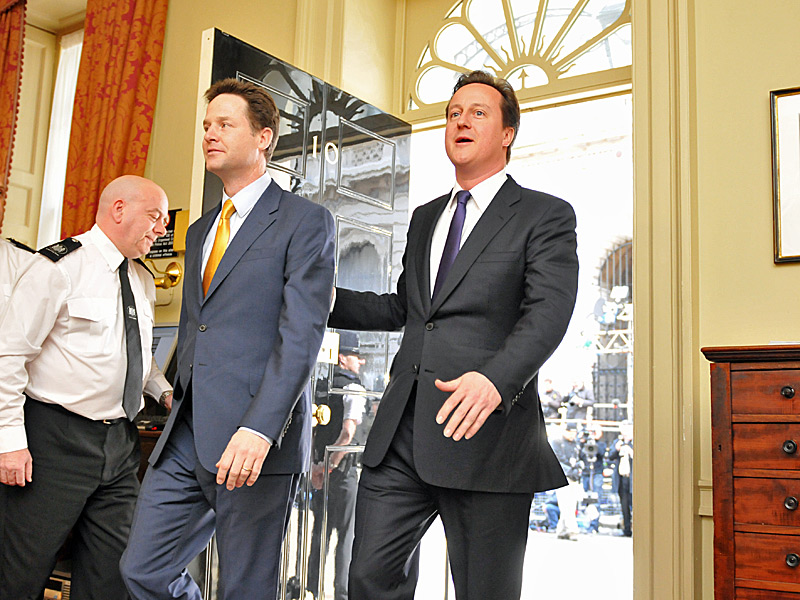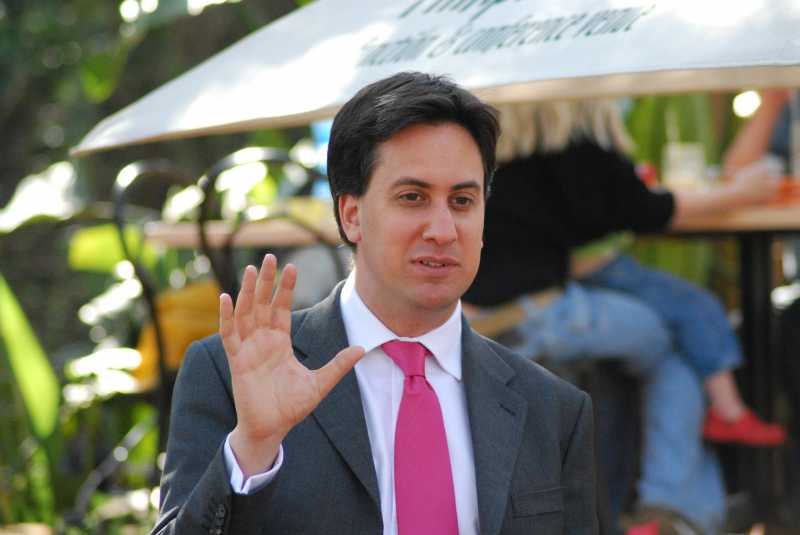The election for all 650 seats will take place on May 7. The last day to file the nomination is on April 9th . New parliament will be summoned on May 18 and the surveys are predicting a hung parliament with minor parties like Scottish Nationalists and UK Independent Party (UKIP) calling the shots…reports Kaliph Anaz

The campaign to elect the next British Parliament has begun as Prime Minister David Cameron met Queen Elizabeth II at Buckingham Palace and requested her majesty to dissolve the parliament.
The election for all 650 seats will take place on May 7. The last day to file the nomination is on April 9th . New parliament will be summoned on May 18 and the surveys are predicting a hung parliament with minor parties like Scottish Nationalists and UK Independent Party (UKIP) calling the shots.
After meeting the queen, the prime minister launched the formal Conservative election campaign at No 10.
“There is a stark choice at the polls,” Cameron told the media. “The next prime minister walking through that door will be me or Ed Miliband.”
He warned that Labour’s “economic chaos” would mean “over £3,000 in higher taxes for every working family to pay for more welfare and out-of-control spending”.
Mr Cameron told the voters they can “choose an economy that grows, that creates jobs, that generates the money to ensure a properly funded and improving NHS and a government that will cut taxes for 30 million hardworking people. Or you can choose the economic chaos of Ed Miliband’s Britain — over £3,000 in higher taxes for every working family to pay for more welfare and out-of-control spending. Debt will rise and jobs will be lost as a result.”
Labour Leader Ed Miliband launched his campaign at Bloomberg in London with a mini-manifesto focussing on the business policies of the Labour.
Shadow business secretary Chuka Umunna and shadow chancellor Ed Balls were with Mr Miliband for the launch of Labour’s business manifesto. Labour has also taken out an advert in the Financial Times focusing on their campaign to stay in Europe.
Miliband warned that an EU referendum proposed by Cameron in 2017 would trigger a bitter two-year campaign in which a re-elected Tory party would tear itself apart over whether the UK should remain in Europe.
Labour hopes to use fears about this uncertainty as a lever to urge companies to look again at some of Miliband’s pro-business policies. The party also plans to highlight the UK’s falling productivity ahead of figures due to be published this week.
“There could be nothing worse for our country or for our great exporting businesses than playing political games with our membership in Europe. David Cameron used to understand that. Perhaps he still does. But in the past five years our place in the European Union has become less and less secure,” Miliband added.

“He used to oppose a referendum on Europe. But the next year, under pressure from rebels in his own party, he gave in. He used to say he would campaign to keep Britain in Europe. But now he won’t rule out campaigning to leave. He used to say he would be able to negotiate treaty change in Europe. But now he prefers to keep quiet about that too.
“He came to power promising to stop his party ‘banging on about Europe’. Now if he carries on this way, he’ll have us inside Europe banging on the door to leave or, even worse, outside Europe – banging on the door to be let back in,” the Labour leader said.
Business leaders have expressed fears about Miliband’s approach to failed markets and his apparent opposition to the role of the private sector in public services. Some have also expressed concern about a possible Labour tie-up with the Scottish Nationalists, fearing the SNP will push Labour’s stance on economic management to the left.
Deputy Prime Minister Nick Clegg said the Liberal Democrats would never “play footsie” with the possibility of quitting the European Union.
The Lib Dem leader told the Radio 4 Today programme: “What we will never ever do is play footsie with the prospect of actually leaving the EU.
“Which is where large parts of the Conservative Party are and, of course, they are doing so as they are desperately chasing UKIP to the right.”
Speaking on Good Morning Britain, UKIP leader MNigel Farage said UKIP would not win the election but could be key in helping shape a future Government.
He said Mr Cameron had been “forced into” promising a 2017 referendum on Britain’s membership of the UK and that his party’s job was to “hold his feet to the fire to make sure that the referendum is not a stitch-up”.
He added: “I don’t want this to be kicked into the long grass until the end of 2017. I think it should be before the end of this year.”
The polls are fluctuating. A Sunday Times Poll put Labour ahead by three points, but a ComRes Poll for ITV News and the Daily Mail shows the Conservatives four points in the lead at 36% to Labour’s 32%.
Sky News’ projection of what Parliament would look like based on the latest polling figures gives Labour 279 seats, with the Tories just one behind on 278. The SNP would win 52, the Lib Dems 16, UKIP two and others 23.
With Parliament dissolved, MPs immediately lose their title and are asked to remove references to it, or place disclaimers on any email or social media account which names them as an MP.